Advisory Board
Darshan Divakaran
President, Airavat LLC
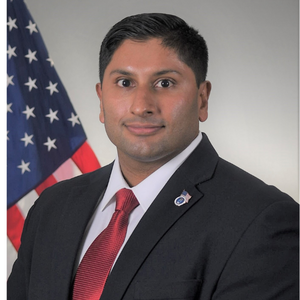
Darshan “Dash” Divakaran is an aerospace intrapreneur and technology evangelist with expertise in aerospace & defense, transportation & infrastructure, autonomy, geospatial analysis, and program management. His areas of expertise in unmanned aviation includes Unmanned Aircraft Systems (UAS), Unmanned Traffic Management (UTM), Advanced Air Mobility (AAM) and counter UAS. Over the years he has led efforts to work with the public and private sector to develop, integrate and manage national award-winning programs and initiatives. He has been recognized by Commercial UAV News, eVTOL Insights and InterDrone as one of the top UAS and AAM visionaries.
In his prior role, Dash was the Head of Airspace Innovation & Prime Partnerships for AFWERX, the innovation arm of the Department of Air Force. In this role he led efforts to promote advanced air mobility, air domain awareness and airspace modernization through joint operations, interagency, state, and academic partnerships. Currently he is back into full time consulting under his company Airavat and supporting organizations like NUAIR, Merlin, Pyka and others. In addition he is also a Senior Advisor at the Roosevelt Group, a bipartisan organization providing advocacy, consulting, business development, and strategic communications in the defense, security & intelligence sector
Darshan holds a MS in Geospatial Information Science & Technology from NC State University and BS in Professional Aeronautics & Aviation Management from Embry- Riddle Aeronautical University. He is also an FAA certified commercial pilot with multi engine rating and holds a Part 107 remote pilot certificate.
Farhan Gandhi
Dr. Hassan A. Gandhi Distinguished Professor and Director of Aerospace Research Department of Mechanical and Aerospace Engineering, NC State University

Farhan Gandhi is the Dr. Hassan A. Hassan Distinguished Professor and Director of Aerospace Research in the Department of Mechanical and Aerospace Engineering at NC State. He obtained his PhD in Aerospace Engineering from U of Maryland’s Alfred Gessow Rotorcraft Center in 1995 and has had a long and distinguished academic career since (at Penn State 1995-2012, Rensselaer Polytechnic Institute 2012-2023, and NC State 2024-onward). Gandhi is a Fellow of the American Institute of Aeronautics and Astronautics (AIAA), the Royal Aeronautical Society (RAeS) and the Vertical Flight Society (formerly the American Helicopter Society). He has chaired multiple major technical conferences and technical committees. He is one of the nation’s top experts on VTOL aircraft aeromechanics, advanced VTOL configurations (including multi-rotor eVTOL aircraft for Advanced Air Mobility applications), and his research has been funded by the US Army, US Navy, US Air Force, NASA, DARPA, NY State Energy Research Development Authority (NYSERDA), the Boeing Company, Sikorsky Helicopters, Bell Helicopters, Agusta Westland Helicopters (now Leonardo Helicopters), United Technologies Research Center (now Raytheon), the GE Company, and more. Gandhi held a Joint Faculty Appointment with the US Army Research Lab, Vehicle Technology Directorate, from 2018-2021.
Over a 30-year academic career, Gandhi has published over 370 technical papers in journals and major conference proceedings, and has advised 31 PhD students to graduation. On 12 occasions, Gandhi has been a plenary/keynote speaker at major technical conferences and has delivered prestigious named lectures such as the 2022 Royal Aeronautical Society’s Cierva Lecture in vertical lift, and the 2019 AIAA Adaptive Structures Lecture, among others.
Christine Hendren, Ph.D.
Interim Vice Provost for Research & Innovation, Appalachian State University
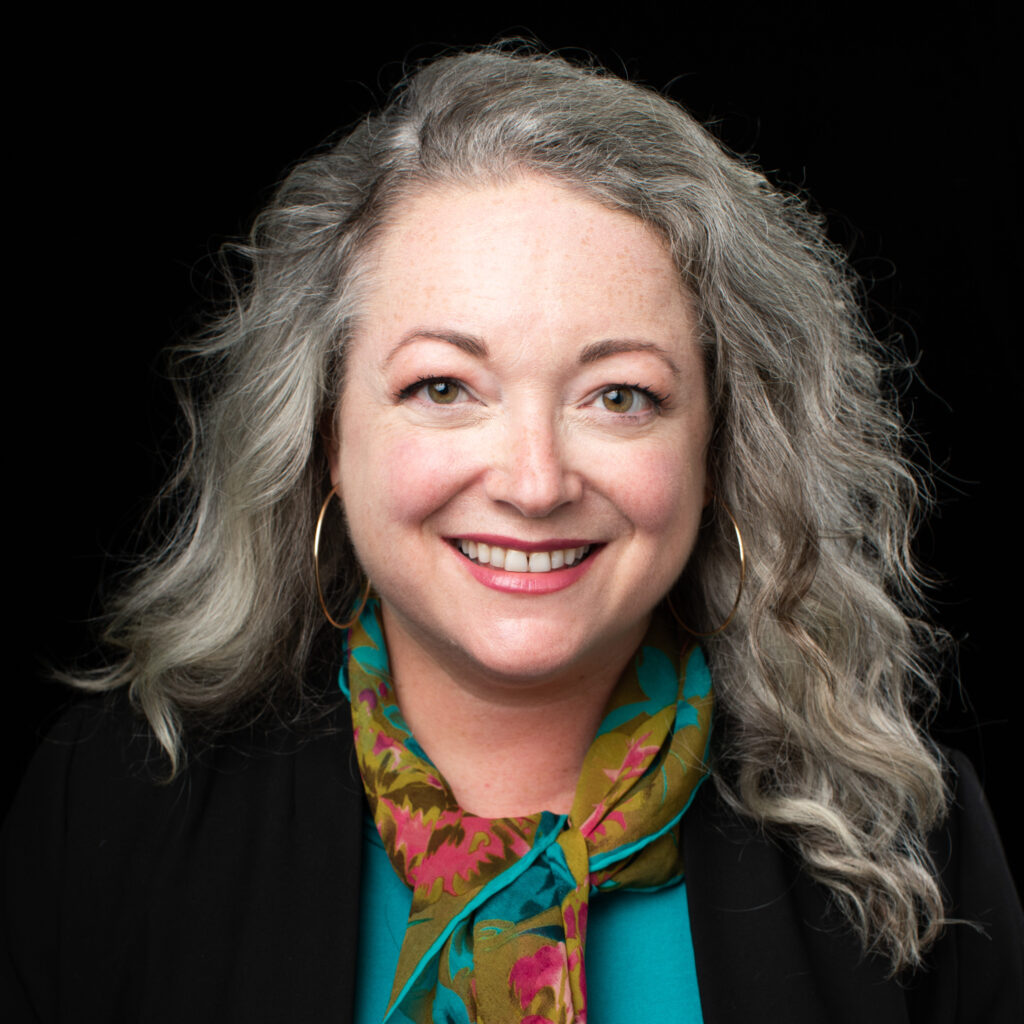
Christine Hendren serves as Interim Vice Provost for Research & Innovation at Appalachian State University, where she is also a Professor in the Department of Geological and Environmental. In those roles she grows enterprise-wide research capacity, with a focus on building transdisciplinary and multi-sector teams to address complex global sustainability challenges.
Her research and research-supporting practices focus on developing and applying methods for co-creation and integration of knowledge across boundaries to enable research teams to address complex global challenges. Domain spaces include convergent topics such as forecasting environmental and health implications of nanotechnology, sustainability in agricultural systems, understanding interkingdom communication in the rhizosphere, and supporting sustainable innovation by integrating rich yet disparate environmental and built environment datasets. She founded and co-chairs INTEREACH (Interdisciplinary Integration Research Careers Hub) in 2016, a thriving community of practice for research professionals whose expertise is integrating across boundaries.
Dr. Hendren holds a Ph.D. in Environmental Engineering from Duke University, a professional master’s in Environmental Analysis and Decision Making from Rice University, and a B.S in Industrial Engineering from Texas A&M University.
Richard Hollenbach
Senior Engineer in Thermal Sciences, Exponent
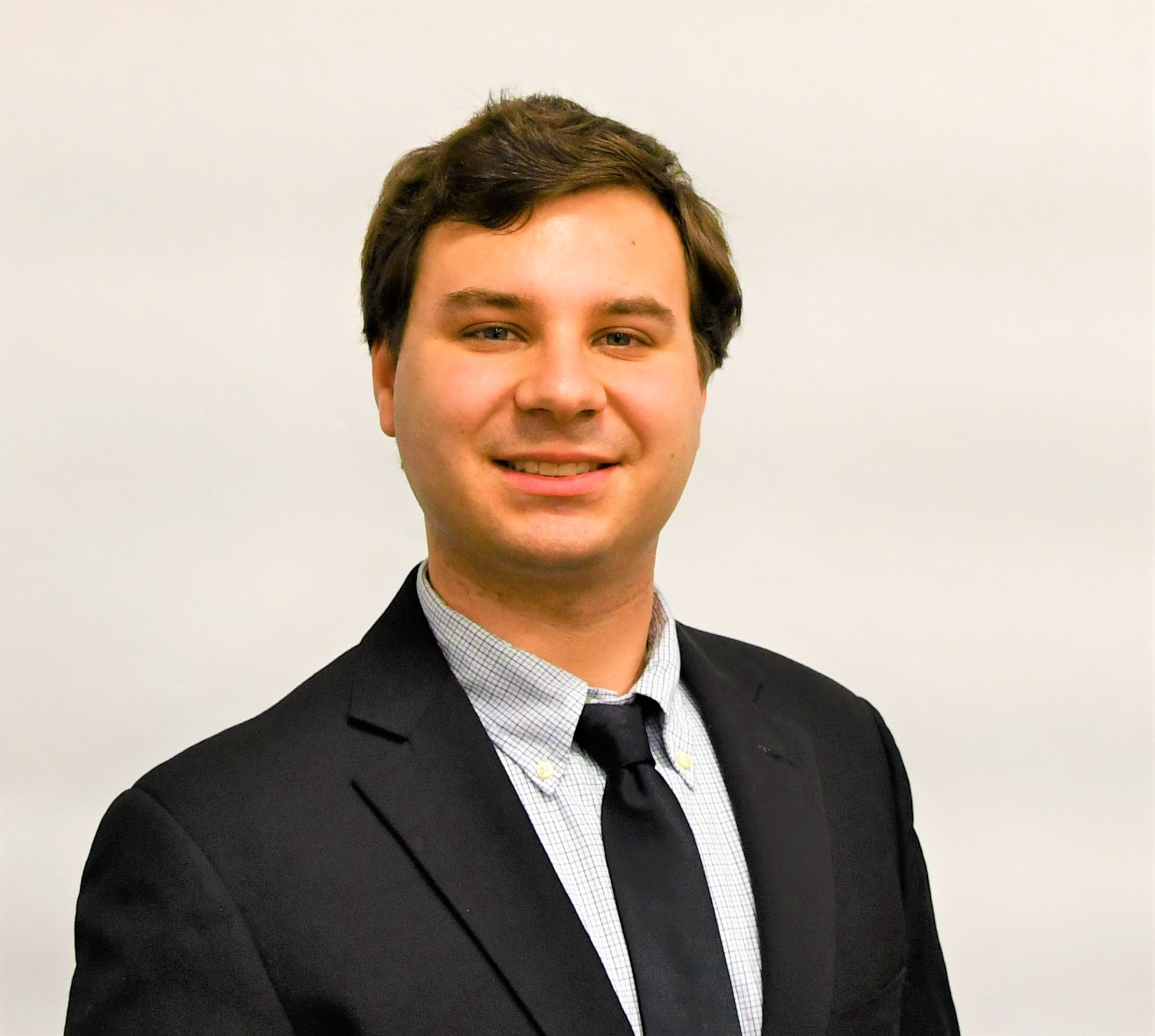
Dr. Richard (Ricky) Hollenbach is a Senior Engineer in Thermal Sciences at Exponent, where he provides technical consulting involving thermal-fluid systems, aeroelasticity, aerodynamics, vibrations, fluid-structure interaction, and turbomachinery. He applies the fundamentals of mechanics, aerospace engineering, physics, and mathematical modeling to investigate performance and failures within thermal and fluid systems.
Dr. Hollenbach is active within the American Society of Mechanical Engineering (ASME), the American Institute of Aeronautics and Astronautics (AIAA), and Tau Beta Pi Engineering Honor Society. He was recognized as an ASME Early Career Leadership Intern Program to Serve Engineering (ECLIPSE) member as well as a Non-Destructive Testing RISE Leadership Development Program member in 2023. He has reviewed technical articles for Turbo Expo, Global Power and Propulsion Society, and the International Symposium on Unsteady Aerodynamics, Aeroacoustics, and Aeroelasticity of Turbomachines (ISHUAAAT).
Dr. Hollenbach earned his PhD in Mechanical Engineering concentrating in Aerodynamics from Duke University, where he also earned his Master of Science (MS) degree in Mechanical Engineering. Dr. Hollenbach was a recipient of two NC Space Grant Graduate Research Fellowships.
Joseph C. Knight
Director & CEO, Hands On! Children’s Museum
President, North Carolina Science Network

Joseph Knight is a lifelong learner, informal STEM educator, and nonprofit museum executive with 20 years of experience within children’s museums and science centers throughout North Carolina. Knight currently serves as the Director and CEO of Hands On! Children’s Museum, located in Hendersonville. He also serves as the President and Board Chair of the North Carolina Science Network, a state-wide collaborative of over fifty science museums, children’s museums, nature centers, planetariums, and other STEM allied organizations located from the mountains to the coast—serving all 100 North Carolina Counties.
Over the years Knight has served in a variety of leadership and STEM engagement roles at KidSenses Children’s Museum, the Rocky Mount Children’s Museum and Science Center, and the Imagination Station Science Museum in his hometown of Wilson. He is also affiliated with a variety of STEM organizations including Association of Children’s Museums, Association of Science and Technology Centers, Lawrence Hall of Science, NASA Museum Alliance, National Institute for Museum and Library Services, and the Smithsonian Science Research Institute.
Knight is committed to providing quality informal STEM learning opportunities to audiences of all ages and abilities. In 2020, Knight was awarded an Honorary Doctorate in Humanitarianism for his efforts to provide world-class informal STEM learning experiences to underserved populations within museum environments throughout North Carolina.
Britt Lundgren, Ph.D.
Assistant Professor of Physics, UNC-Asheville
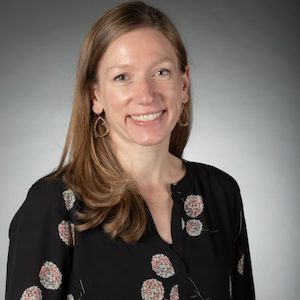
Britt Lundgren has been a member of the faculty in UNC Asheville’s Department of Physics and Astronomy since 2016. Her research focuses on the stellar populations and star formation histories of distant galaxies, observed directly through deep space-based infrared imaging, and the evolution of the gas and dust content of galaxies and the intergalactic medium throughout cosmic history. In 2020, Lundgren was named a Cottrell Scholar, a prestigious honor from the Research Corporation for Science Advancement (RCSA).
Prior to joining the UNC-Asheville faculty, Lundgren held an AAAS Science and Technology Policy Fellowship in the Division of Undergraduate Education at the National Science Foundation. In this role, she worked with various federal science agencies on projects aiming to increase participation and outcomes for students in Science, Technology, Engineering, and Mathematics (STEM) fields. Lundgren has additional past experience working as a postdoctoral research associate at Yale University and later as a National Science Foundation Astronomy and Astrophysics Postdoctoral Fellow at the University of Wisconsin-Madison.
Lundgren holds a B.A. in Physics from the University of Chicago and a Ph.D. in Astronomy from the University of Illinois at Urbana-Champaign.
Matthew Meyer, Ph.D.
Associate Vice President for Business Engagement, National and International Partnerships, NC Community College System
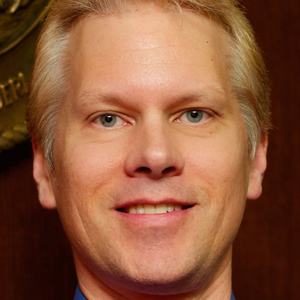
Matthew Meyer is the current associate vice president for business engagement and national and international partnerships at the North Carolina Community College System (NCCCS). Meyer is responsible for a plethora of initiatives including Sector Strategies, Council of Associations for Engagement, Credit for Prior Learning, Latino/Hispanic Initiative, and national certification data project implementation. Additionally, Matt is a trained facilitator for the Talent Pipeline Management and Next Generation Sector Partnerships models of engaging business and industry.
Meyer began his career at Asheville-Buncombe Technical Community College as chairperson of mechanical engineering technology, later becoming the dean of corporate and continuing education. Meyer served two years as the executive director of BioNetwork, the life science education initiative launched by NCCCS. Meyer also has served as the associate vice president for STEM innovation and strategic planning at NCCCS.
Meyer holds a master’s in mechanical engineering from the University of Dayton, a master’s in bioengineering from Clemson University and a Ph.D. in community college leadership from Old Dominion University.
Jeff Mobley
Senior Chief Engineer for Spacecraft Systems, Sierra Space

Jeff Mobley is the Sr. Chief Engineer for Spacecraft Systems at Sierra Space where he provides technical oversight on strategy, proposals, design execution, milestone reviews, and failure resolution. He has 31 years of experience related to design, development, fabrication and testing of electro-mechanical systems, including 26 years in the Space industry. He received a BS in Mechanical Engineering from North Carolina State University and in 2021 was inducted into the NCSU Mechanical and Aerospace Engineering Hall of Fame. He has previously served on the technical advisory board of the American Gear Manufacturers Association (AGMA) Aerospace Gearing Committee as a Space Industry gearing expert.His projects have included mechanisms in support of space programs such as Mars Perseverance Rover, Mars Curiosity Rover, Global Precipitation Measurement, Lunar Reconnaissance Orbiter, Solar Dynamics Observatory, Mars Phoenix Lander, the Sierra Space Dream Chaser™ spaceplane, and multiple Defense satellites. These custom designed products perform functions such as antenna pointing, solar array positioning, robotic arm articulation, flight surface control, wing folding, camera pointing, and descent braking. Jeff has authored and presented multiple technical papers for the Aerospace Mechanisms Symposium. He is a co-author on U.S. Patent, #6667564 “Mechanically-Commutated DC Motor”.
Tallis Monteiro
North Carolina Center Lead, NASA DEVELOP National Program, NOAA National Centers for Environmental Information
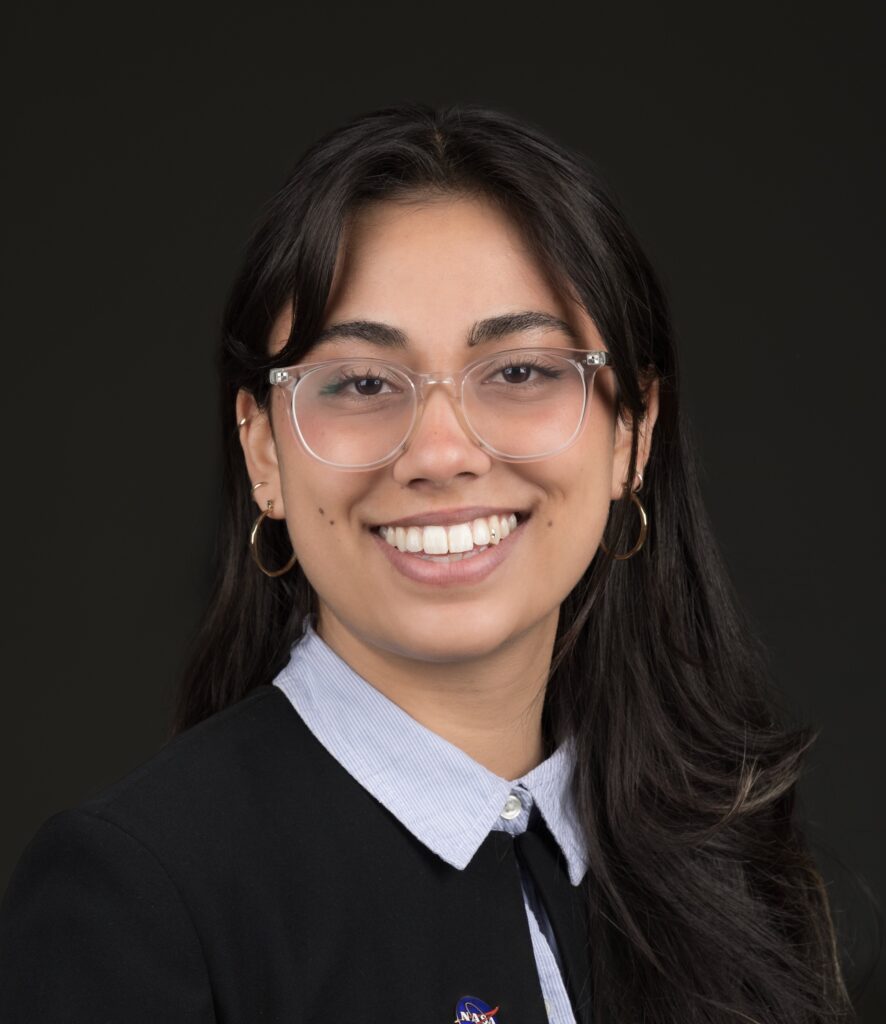
Tallis Monteiro is the North Carolina Center Lead for the NASA DEVELOP National Program and is based at NOAA National Centers for Environmental Information (NCEI) in Asheville, NC. Prior to leading projects, she participated in two DEVELOP terms as a participant, researching health and air quality in the Pacific Northwest, followed by wetland declination in Colombia. Tallis earned an Interdisciplinary Studies degree from the University of North Carolina at Asheville, allowing her to combine her academic interests in Environmental Science, Human Rights, and International Studies. As an undergrad, Tallis published research that analyzed the long-term ethnoecological impacts of petroleum extraction in the Ecuadorian Amazon. Tallis has also worked at Asheville GreenWorks, a local environmental nonprofit. She was their Environmental Educator and co-led their Youth Environmental Leadership Program, a program engaging BIPOC (Black, Indigenous, and People of Color) youth in the field through educational experience, data collection, and service work focusing on environmental justice.
Kuldeep Rawat, Ph.D.
Chair of the Department of Technology and Director of Aviation Science Program, Elizabeth City State University
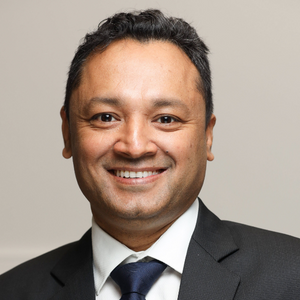
Kuldeep Rawat is the Thorpe Endowed Professor and Dean of School of Science, Aviation, Health and Technology at Elizabeth City State University (ECSU), Elizabeth City, North Carolina. Dr. Rawat holds an MS in Computer Science, MS in Computer Engineering, and a Ph.D. in Computer Engineering from the Center for Advanced Computer Studies, University of Louisiana-Lafayette (ULL). At ULL he conducted research into video compression techniques for applications in aerial surveillance platforms used for monitoring wetlands. He has more than twenty years of combined Industrial and Academic Research and Teaching experience. Rawat is an International Air Transportation Association (IATA) certified Aviation Management Professional. He has also received professional certifications in Aviation Safety Management and Unmanned Aircraft Systems Operations from Embry-Riddle Aeronautical University, Data Analyst from IBM, and Applied Data Science from MIT.
Rawat provides leadership and manages the School’s administrative operations. The School of Science, Aviation, Health, and Technology (SAHT) is home to four academic departments and fifteen academic programs: Natural Sciences (Biology BS/MS, Chemistry, and Sustainability Studies); Health and Human Studies (Pharmaceutical Sciences, Kinesiology, Psychology, and Social Work); Mathematics, Computer Science, and Engineering Technology (Mathematics BS/MS, Computer Science, Engineering Technology); Aviation and; Emergency Management (Aviation Science, Unmanned Aircraft Systems, and Emergency Management), which includes over sixty full-time and temporary employees. In addition, the SAHT houses Aviation Science, the institution’s signature program. The SAHT also houses the Center for Excellence in Remote Sensing Research and Education, NC Math/Science Enrichment Network (NC-MSEN), and ECSU’s Khan Planetarium.
Rawat has served as the Principal Investigator/Project Director on multiple grants, including National Institute of Justice (NIJ), US Department of Energy, the US Department of Transportation, NC Division of Aviation, NASA, the Burroughs Wellcome Fund, the Hewlett-Packard Foundation, and the Golden LEAF Foundation. He has secured over $8 Million in external funding to support research, teaching, program development/enhancement, and outreach projects at ECSU.
He also serves as the Director of ECSU’s signature/flagship program in Aviation Science. As the Director of state’s only 4-year collegiate aviation program, he is responsible for strategic planning, conducting aviation program needs assessment, purchasing aircraft, flight simulators and ATC lab equipment, avionics trainers, laboratory upgrades and developing a strategic plan to grow and sustain state’s only four-year aviation education program. Recently, Dr. Rawat led the efforts to establish a BS degree in Unmanned Aircraft Systems program at ECSU. He also led the efforts to secure Aviation Accreditation Board International (AABI) accreditation for the Aviation Science program and Accreditation Board for Engineering Technology (ABET) accreditation for the Engineering Technology program.
Michael Rice
Senior Technical Writer, KBR

Michael Rice was born and raised here in North Carolina. He has worked in satellite mission operations for over 20 years. Michael received his undergraduate degree in Chemistry from the University of North Carolina at Chapel Hill, and later earned a M.S. degree in Technology Systems from East Carolina University. He began his career as a Space Systems officer in the U.S. Air Force, working with the Defense Meteorological Satellite Program (DMSP) at Offutt Air Force Base in Omaha, Nebraska. After a four-year stint in the military, he became a contractor at the NASA Goddard Space Flight Center (GSFC) in Greenbelt, MD.
Michael has worked with a myriad of different unmanned space programs, including the Relay Mirror Experiment (RME), NASA Small Explorers Program (SMEX), Hubble Space Telescope (HST), Landsat-7, and the Lunar Reconnaissance Orbiter (LRO), to name a few. He has worked in all phases of the spacecraft mission lifecycle, from pre-launch requirements development, integration and test (I&T), Launch and Early Orbit (LEO), and normal mission operations. Currently, Michael works as a contractor for KBR in their Science & Space Business Development unit, as a senior technical writer.
Olivia Scott
Aerospace Structural Engineer, Collier Aerospace
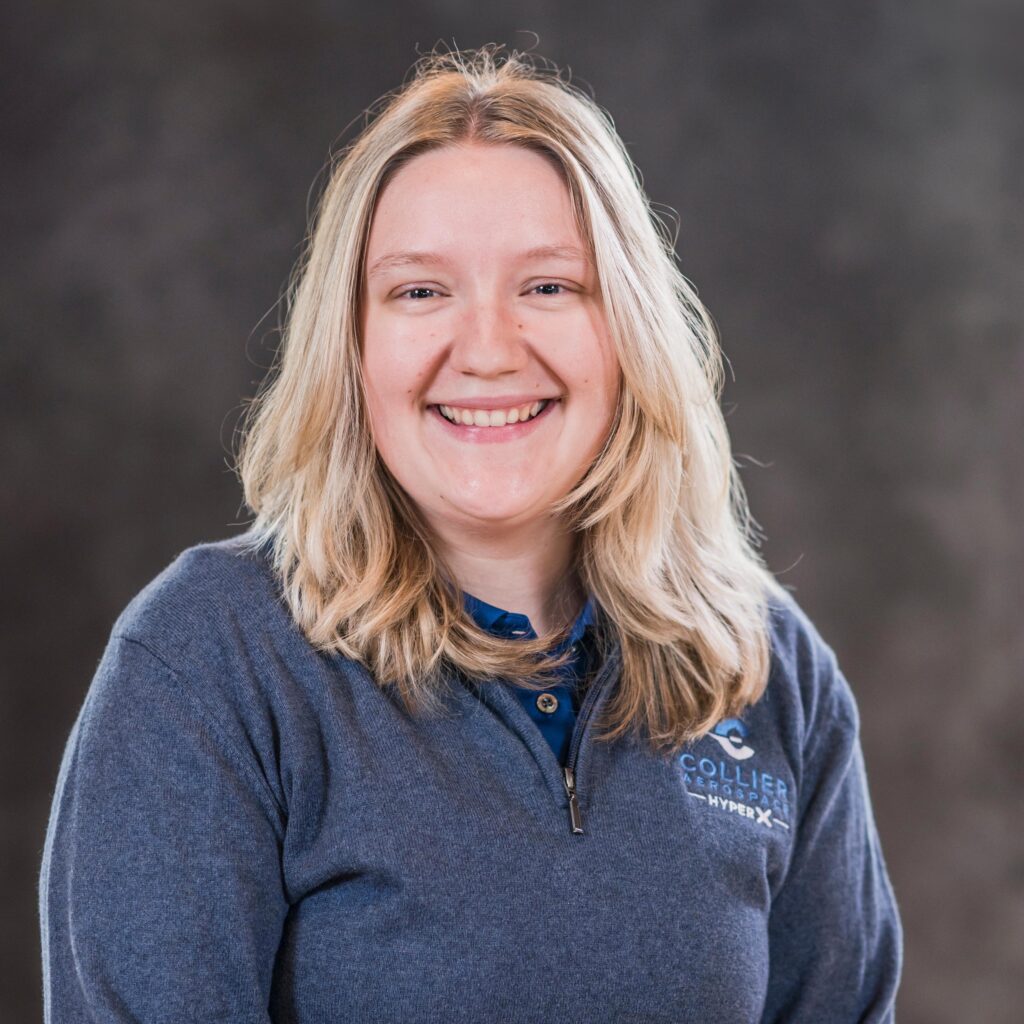
Olivia Scott is an Aerospace Structural Engineer for Collier Aerospace. She earned her B.S. in Aerospace Engineering from North Carolina State University and received a NC Space Grant sponsored internship during her collegiate career. Olivia joined the company in 2022 as a NC Space Grant career intern, where she began her structural engineering career focusing on traditional analytical structural analysis and working with the commercial space and military aviation industries. Following the internship, she transitioned into a full-time position in 2023, further deepening her expertise in evaluating and optimizing aerospace structures. With a deep understanding of the industry’s technical challenges and practical applications, Olivia brings valuable insight to projects requiring rigorous evaluation of structural integrity and performance.
Jennifer Stalls, EdD
Director of STEM Education, Pitt County Schools District

Originating from Eastern North Carolina, Jennifer Stalls has cultivated a career underscored by a steadfast commitment to education and an unwavering passion for science. A graduate of the North Carolina School of Science and Mathematics, Jennifer emerged with a profound appreciation for the transformative impact of education. Subsequently, she pursued her bachelor’s and master’s degrees in Middle Grades Education at East Carolina University, where her academic trajectory was further enriched by her participation in the North Carolina Space Grant RESTEP to STEM pre-service teacher scholarship where she studied the relationship between science and language.
Serving as a middle school science educator in Pitt and Greene counties, she fostered a profound love for science among her students. In 2015-2016, she was selected for a Kenan Fellowship where she focused on pioneering citizen science initiatives, showcasing a commitment to innovative educational methodologies. Jennifer attained a Doctorate in Education in Curriculum and Instruction from the University of North Carolina at Wilmington, enhancing her knowledge in curriculum development and pedagogical strategies.
Aurora Toennisson
Ph.D. Candidate, Perera Lab at North Carolina State University
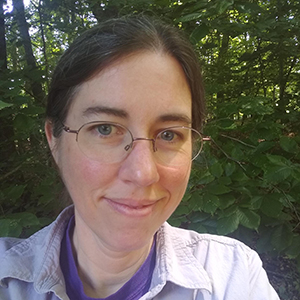
Aurora’s dissertation research focuses on plant adaptation to spaceflight. In support of this research, she received two NC Space Grant fellowships for projects focused on plant response to simulated microgravity and the effects of spaceflight-isolated microbes on plant growth. As part of her PhD, she has gained several years experience as a teaching assistant for general botany and plant molecular biology lab classes. Previously, Aurora received a BS in Biology with a focus on Ecology and Evolutionary Biology and a MS in Entomology from the University of Tennessee. Her MS research focused on the community ecology of urban ants and the nesting behavior of the pest ant species Tapinoma sessile. Prior to returning to grad school for her PhD, she worked for a couple years on an organic farm and several more as a research associate in an agricultural entomology lab. In the latter role, she supported research on pests and beneficial insects associated with North Carolina specialty crops.
Aurora is an avid supporter of science communication and outreach. She blogs about entomology and gardening at The Biologists Garden and space biology at Sprouts in Space. She coordinates outreach events for the North Carolina Entomological Society, the Orange County Radio Amateurs, and the NCSU Biology Maker Group. Her volunteer work as a middle school First Lego League coach is what originally inspired her to pursue space biology. Upon graduating, she hopes to find work where she can do meaningful research related to plants and microbes, continue formal or informal science teaching, and remain engaged with the space biology community.